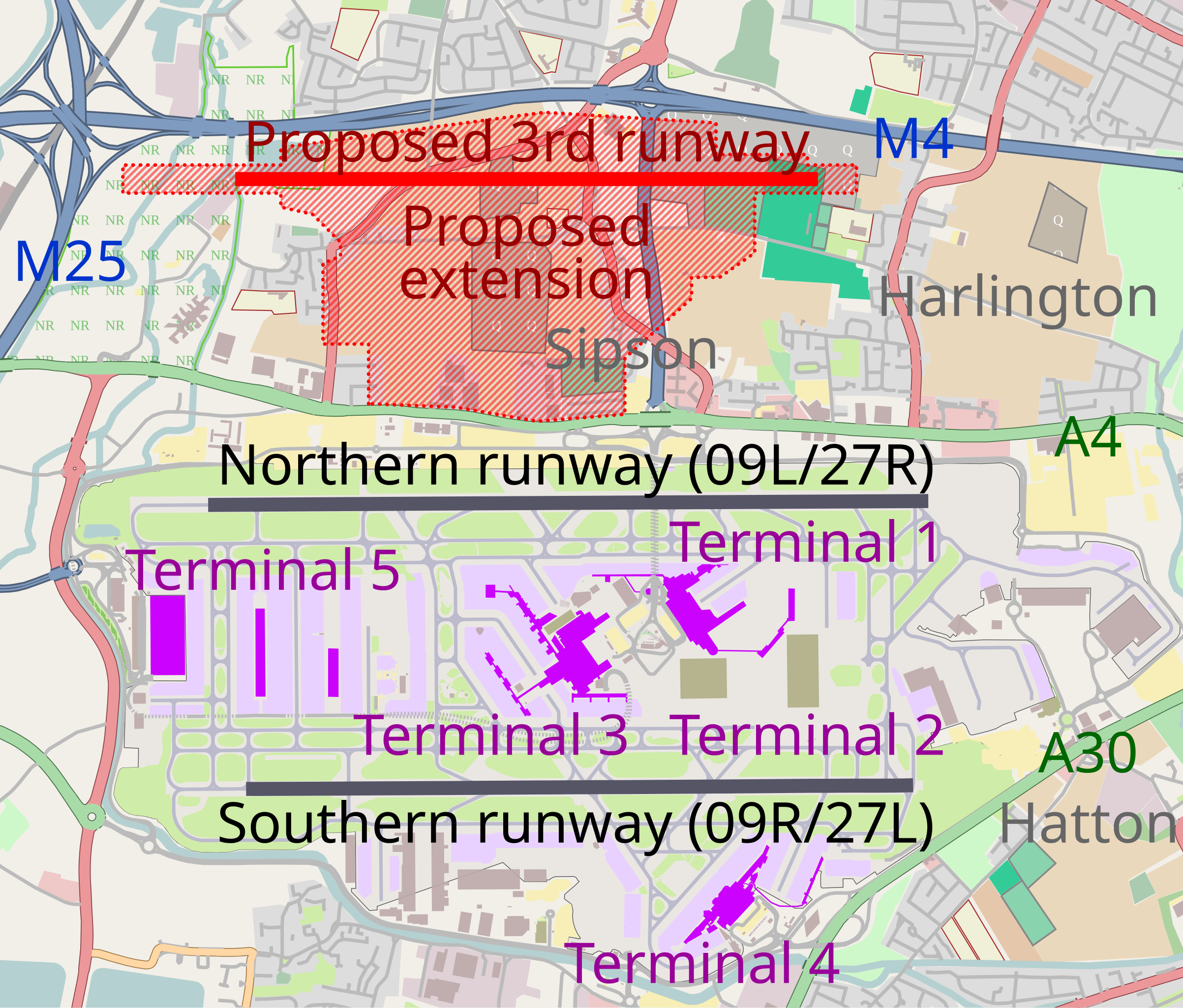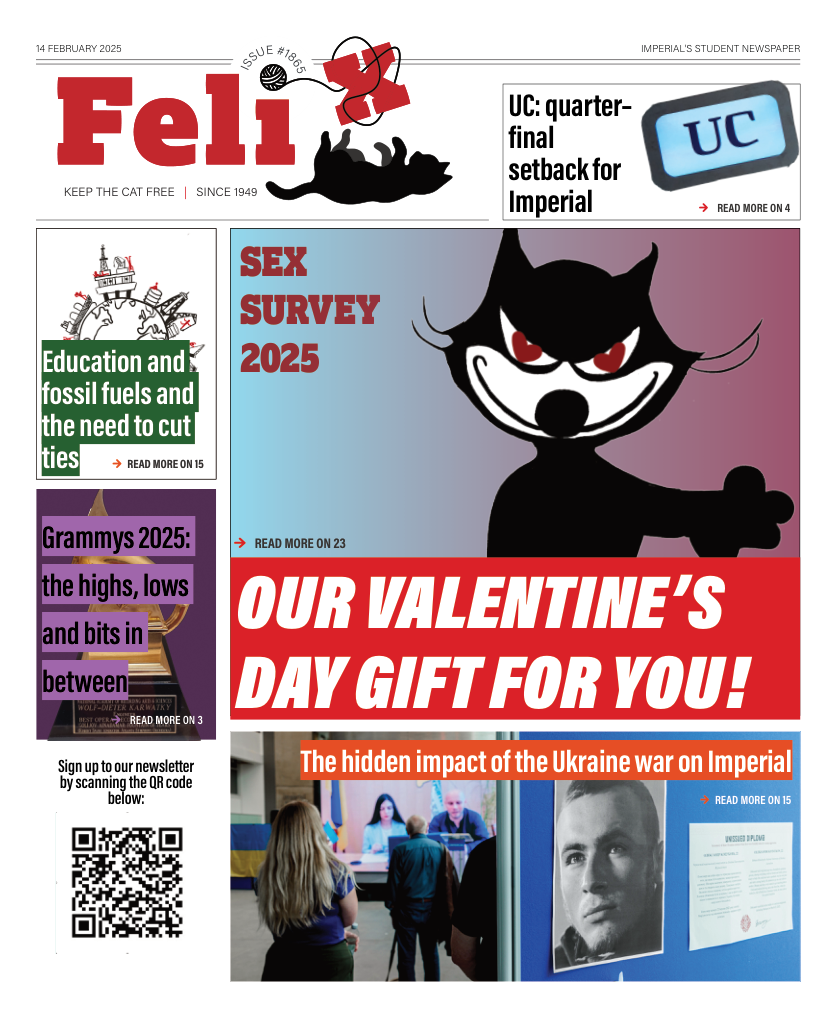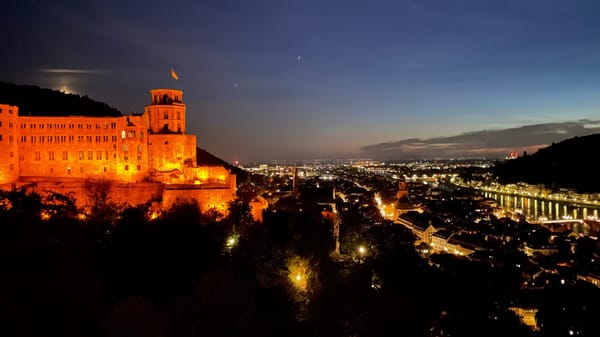Heathrow’s non-ideal expansion
Travel writer Dan discusses the pros and cons of Heathrow’s third runway, recently confirmed for construction by the Labour government.
Expanding Heathrow sounds like a good idea in principle. More flights mean easier travel to other parts of the world, and it’s construction and maintenance would create jobs. However, after considering environmental impacts, relocation of people, and alternative uses of the money, expansion doesn’t sound so attractive.
The benefits
The main benefit of expanding Heathrow would be accomodating the capacity needed for long haul flights. However, it can be argued that improving existing rail connections would be a better use of this money than for shorter flights. Heathrow connects London to cities such as Manchester, Paris, Newcastle, and Edinburgh. These destinations are close enough that high speed rail would be faster,including travel time to the airport and time spend passing through security. Naturally, this assumes these high speed rail lines already exist. Diverting people from these plane routes onto high speed rail instead would free up the limited space available at Heathrow, thereby reducing the need to expand. Heathrow is also one of five airports serving London, so it is a big question whether this expansion is necessary in the first place.

The cost of construction
Heathrow estimates that the new runway will cost £17 billion, but this doesn’t take into account building rail and road infrastructure. While estimates vary wildly for this, Transport for London (TfL) estimates this would cost around £18bn after considering knock on effects for the rest of the tube network. The bulk of this money would come from taxes which could be better spent elsewhere.
Also, as of 2019, Heathrow is in a legally binding agreement to offset any carbon emissions that would be created, which is expected to cost £100bn. This is the same projected cost for finishing the high speed train (HS2) to Manchester, which would eliminate the need for short haul flights between Heathrow and Manchester, freeing up space for planes elsewhere.
The passengers
We can also talk about comfort. A recent poll showed that people prefer trains to planes, assuming the cost was the same despite the train taking slightly longer, with 66% of respondents preferring trains, 25% preferring planes, and 9% voting as undecided. Of course, trains in the UK are currently very expensive and unreliable, which is a large factor in people’s travel decisions. There is a big argument for using the money that would go to Heathrow on train improvements to the UK instead.
Additionally, expanding Heathrow would harm the locals living around the airport, as the construction would necessitate the destruction of around 700 homes, forcing these people to move elsewhere. Otherwise, in term of making travel more environmentally, trains are 96% more carbon efficient than planes, therefore the expansion would be a step back.
Space and relocation
A lot of people in the UK wouldn’t particularly benefit either, considering Heathrow generally has the more expensive flights out of the London airports, and many people in the UK can’t afford holidays due to increasing living costs. The building of the runway would create jobs in construction, maintenance, shops in the terminals and flight crew, but expanding the train network or spending the money on renewable energy sources would also create jobs. Most of the economic benefit from the expansion would be felt in the southeast, pushing the rest of the UK further behind London.
In conclusion, expanding Heathrow would be at best irresponsible and at worse detrimental. The expansion has many benefits, making air travel easier and contributing to the local economy, however lots of this money wouldn’t actually go to the UK economy, instead to private air companies. There are also massive costs to the climate. The climate crisis is only worsening, so we should be spending money on reducing air travel, not increasing it.









